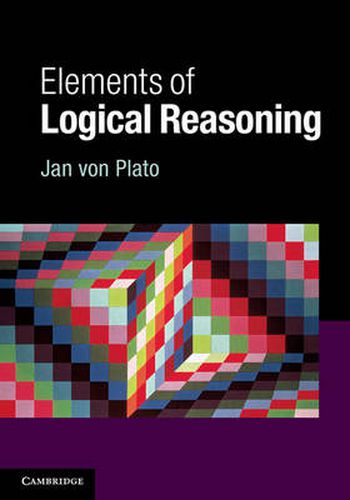Readings Newsletter
Become a Readings Member to make your shopping experience even easier.
Sign in or sign up for free!
You’re not far away from qualifying for FREE standard shipping within Australia
You’ve qualified for FREE standard shipping within Australia
The cart is loading…






Some of our earliest experiences of the conclusive force of an argument come from school mathematics: faced with a mathematical proof, we cannot deny the conclusion once the premises have been accepted. Behind such arguments lies a more general pattern of ‘demonstrative arguments’ that is studied in the science of logic. Logical reasoning is applied at all levels, from everyday life to advanced sciences, and a remarkable level of complexity is achieved in everyday logical reasoning, even if the principles behind it remain intuitive. Jan von Plato provides an accessible but rigorous introduction to an important aspect of contemporary logic: its deductive machinery. He shows that when the forms of logical reasoning are analysed, it turns out that a limited set of first principles can represent any logical argument. His book will be valuable for students of logic, mathematics and computer science.
$9.00 standard shipping within Australia
FREE standard shipping within Australia for orders over $100.00
Express & International shipping calculated at checkout
Stock availability can be subject to change without notice. We recommend calling the shop or contacting our online team to check availability of low stock items. Please see our Shopping Online page for more details.
Some of our earliest experiences of the conclusive force of an argument come from school mathematics: faced with a mathematical proof, we cannot deny the conclusion once the premises have been accepted. Behind such arguments lies a more general pattern of ‘demonstrative arguments’ that is studied in the science of logic. Logical reasoning is applied at all levels, from everyday life to advanced sciences, and a remarkable level of complexity is achieved in everyday logical reasoning, even if the principles behind it remain intuitive. Jan von Plato provides an accessible but rigorous introduction to an important aspect of contemporary logic: its deductive machinery. He shows that when the forms of logical reasoning are analysed, it turns out that a limited set of first principles can represent any logical argument. His book will be valuable for students of logic, mathematics and computer science.